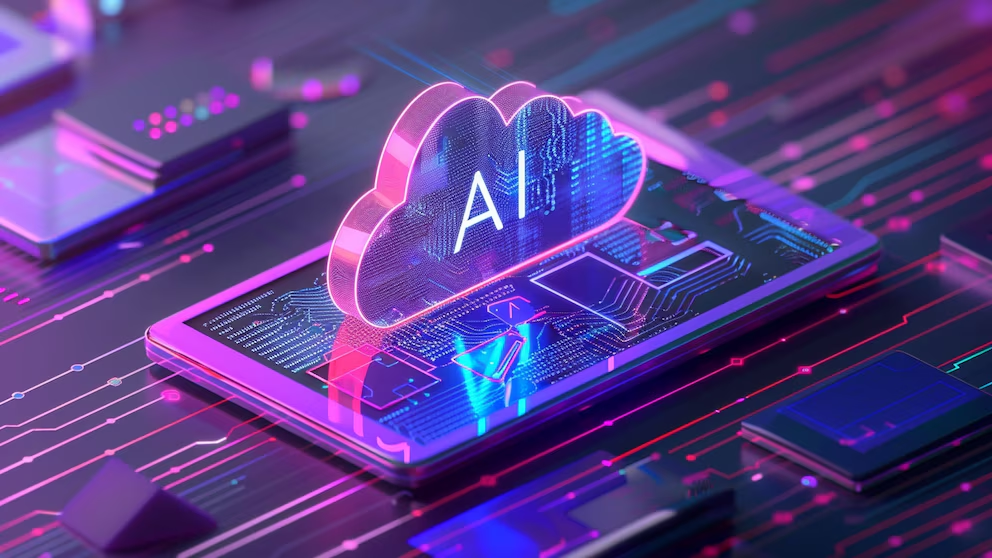Prosperity and creativity for all: how the AI+ era can unleash a new horizon in 2025

The AI+ era, where artificial intelligence converges with other advanced technologies such as robotics, IoT, blockchain, and quantum computing, promises to bring about a new era of prosperity and creativity for all by 2025. Here’s how this technological revolution can reshape industries, economies, and societies:
1. Empowering Innovation and Creativity
AI can democratize access to knowledge and creative tools, enabling people from diverse backgrounds to innovate and create. AI-powered platforms can assist in generating new ideas, designs, and content across industries like art, music, literature, and engineering. These tools will allow individuals, regardless of their technical skills, to express their creativity in ways never before possible, sparking a global cultural renaissance.
- AI-assisted creativity: Artists, musicians, and designers will be able to collaborate with AI to generate new forms of artistic expression, enabling faster iterations and innovative designs.
- Collaborative innovation: AI-powered platforms will provide businesses, startups, and individuals with tools to rapidly prototype new products, services, and ideas.
2. Automation Driving Economic Growth and Job Creation
Automation powered by AI will streamline repetitive and mundane tasks, allowing workers to focus on higher-value activities that require critical thinking, problem-solving, and interpersonal skills. By augmenting human capabilities rather than replacing them, AI will contribute to higher productivity and economic growth.
- Productivity and efficiency: AI will optimize production lines, automate administrative tasks, and enable real-time data-driven decision-making, resulting in better business outcomes and lower operational costs.
- New job opportunities: The emergence of new AI-driven industries (e.g., AI ethics, AI healthcare) will create jobs, especially in areas where human expertise complements AI capabilities.
3. Enhancing Education and Lifelong Learning
AI will transform education by providing personalized learning experiences and access to knowledge that fits individual needs and learning styles. With AI-driven platforms, people will have access to affordable, customized education and skill development, preparing them for future jobs and enabling continuous learning throughout their lives.
- Personalized learning paths: AI will analyze learning patterns and curate individualized content to meet the specific needs of each learner, fostering better engagement and outcomes.
- Global access to knowledge: Educational content can be accessed globally, breaking barriers of geography and socioeconomic status, and helping bridge education gaps in underserved regions.
4. Inclusive Healthcare and Well-Being
AI-powered healthcare solutions will bring personalized, efficient, and accessible medical services to people around the world. From predictive diagnostics to robot-assisted surgeries, AI will revolutionize healthcare, improving patient outcomes and reducing costs.
- AI in diagnostics: AI-driven diagnostics can predict diseases with high accuracy, allowing for early interventions and preventive healthcare measures.
- Telemedicine and remote care: AI can provide virtual healthcare services to remote areas, ensuring that healthcare is accessible to all, regardless of location.
5. Sustainability and Environmental Stewardship
The AI+ era will help tackle global challenges like climate change, resource depletion, and biodiversity loss. AI technologies can optimize energy use, improve waste management, and enable smarter, more sustainable agriculture and urban development.
- AI for climate action: AI-powered models can predict climate patterns, optimize renewable energy systems, and provide insights into reducing carbon footprints.
- Precision agriculture: AI will enable farmers to optimize crop yields while minimizing water usage, pesticide use, and environmental impact.
6. Smart Governance and Policy-Making
AI can transform governance by providing data-driven insights for policy-making and improving the delivery of public services. With the ability to analyze large datasets and predict outcomes, AI can help governments make informed decisions on issues such as public health, infrastructure, and social services.
- Data-driven policy: AI can provide real-time insights into societal needs and trends, helping governments craft more responsive policies.
- Public service optimization: AI will enhance the efficiency of public services, making them more accessible and user-friendly, while reducing administrative burdens.
7. Social Equity and Inclusion
AI can be a force for social good by providing equal opportunities and reducing disparities. It can address inequality in access to education, healthcare, and job markets, fostering a more inclusive society where everyone can benefit from technological advancements.
- Inclusive innovation: AI tools can be designed with accessibility and equity in mind, ensuring that marginalized communities have access to the same opportunities as others.
- AI for underserved populations: AI-driven initiatives can focus on improving the quality of life for disadvantaged groups, such as providing education and healthcare to rural areas through digital platforms.
8. Collaborative Human-AI Partnership
Rather than replacing human labor, the AI+ era will foster a collaborative relationship between humans and machines. AI will take over repetitive tasks, while humans will focus on complex decision-making, empathy, and creativity.
- Human-centric AI design: AI systems will be designed to augment human capabilities, enabling workers to achieve more and thrive in a dynamic economy.
- Augmented creativity and problem-solving: AI will empower humans to tackle global challenges by offering insights and simulations, unlocking creative solutions that were previously unimaginable.
Conclusion
The AI+ era of 2025 is poised to be one of inclusive prosperity and creativity. By harnessing the transformative power of AI, societies can unlock new opportunities for growth, well-being, and innovation while addressing global challenges such as climate change, inequality, and healthcare access. Through responsible AI development and deployment, we can create a world where technology empowers all individuals to thrive and contribute to a brighter future.
The key to achieving this vision lies in ensuring that AI is developed ethically, inclusively, and with a focus on the common good, enabling a future where everyone can benefit from its immense potential.